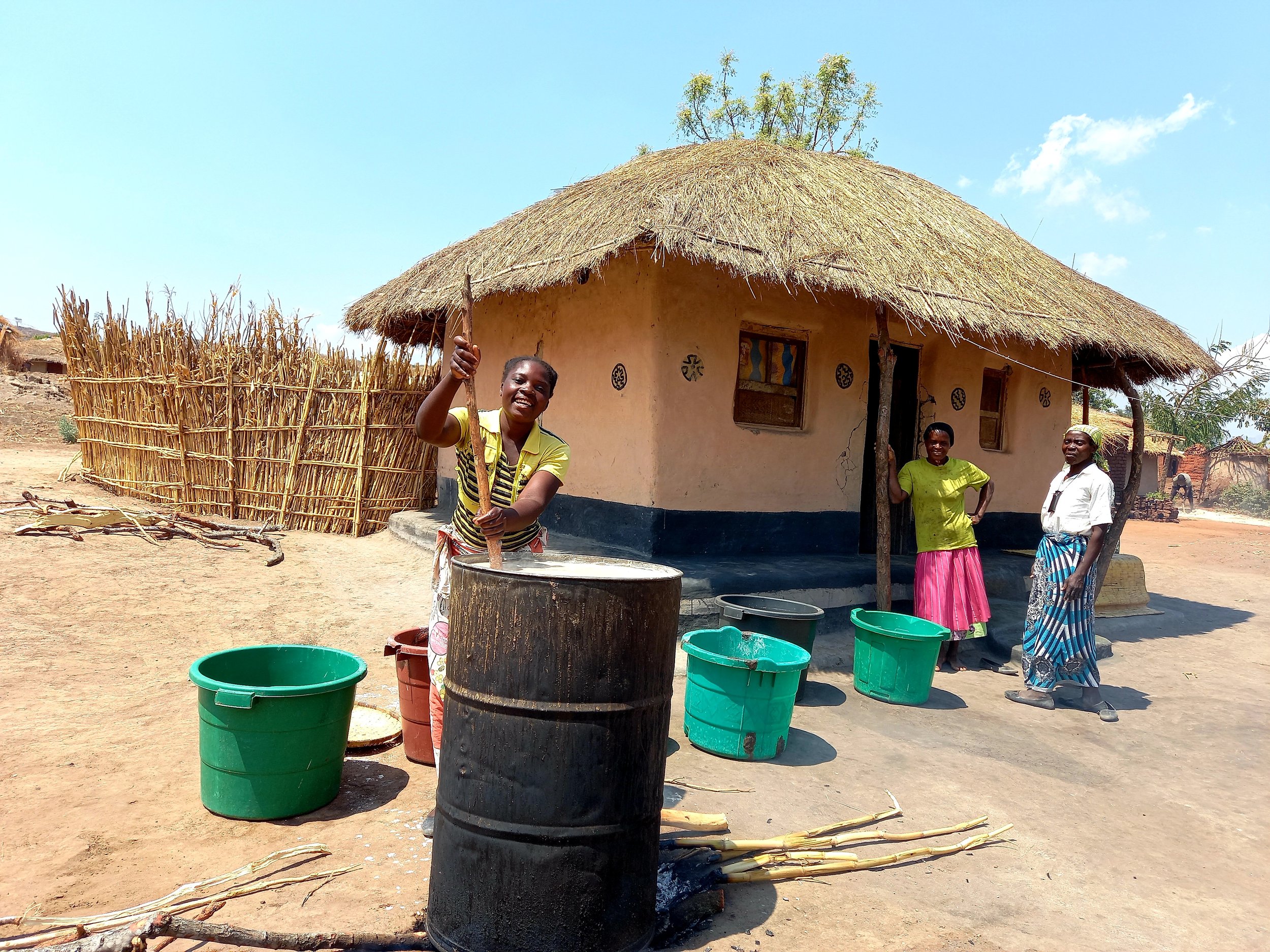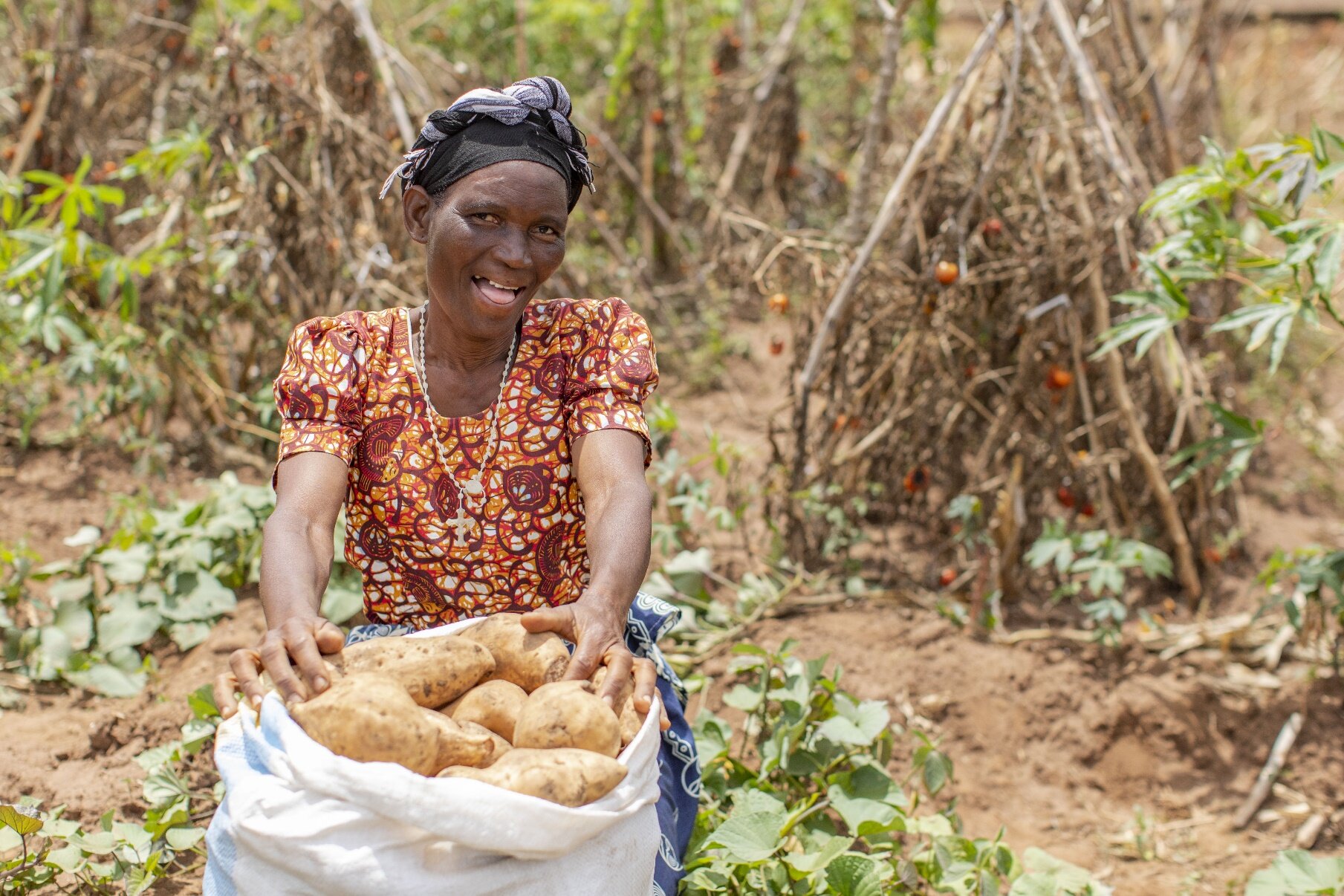Meet Chrissy Simon. She lives in a rural village in Malawi’s Traditional Authority Mabuka. She has three children and is a member of the Government of Malawi’s Social Cash Transfer Programme. Until recently, life for Chrissy was characterised by poverty, exacerbated by inequalities between male and female household members.
Image: Chrissy and her family stand outside their newly built home
Like many other households in the village, the burden of household work fell on Chrissy and female members of the family. For many years, Chrissy’s husband’s small fish-selling business had been stagnant due to poor management and little involvement from the rest of the family. Although Chrissy tried to inject money into the business through her Village Savings and Loans (VSL) group, there was little to show for it: “We had been struggling as a family for several years,” says Chrissy. “We have been living in a dilapidated house.”
Equalising power relations
Life started to change in 2019, when United Purpose began working in Chrissy’s village through the EU-funded Social Support for Resilience (SoSuRe) project. The project’s ‘Gender Household’ approach aimed to improve and equalise power relations among adult and youth household members, in order to promote joint decision-making and equitable access to, and control over, resources. The project sent local gender champions to speak to Chrissy’s VSL group about the approach.
Chrissy’s husband was receptive to the idea, and soon a gender champion came to visit the family for an orientation session. All family members were present, and they were guided to set out a three-year vision to have a better house with an iron roof, cement floor and electricity. They also envisioned expanding the fish business to be run by the whole family.
Plans into action
In order to achieve the vision, the gender champion helped the family develop an action plan. Their plan included cultivating and selling high-value crops (such as ground nuts and pigeon peas) and maize. The family set yearly milestone targets and agreed to use the saved money in the VSL group.
A couple of years down the line, the improvement to the family’s livelihood is evident. In Chrissy’s husband’s own words: “This is our second year, and we have managed to build the house, the business of selling fish is thriving, and we also sell vegetables at the market. We are able to sustain our basic needs and pay school fees for our children. We are on track with what we planned – by 2023, we should have achieved our goal of a cement floor and electricity.”







